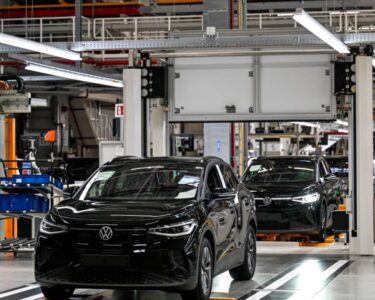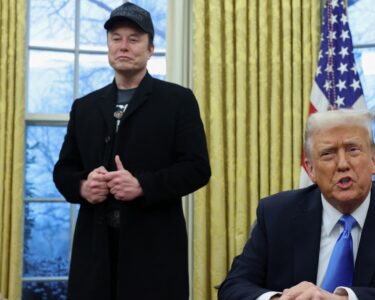U.S. President Donald Trump speaks at Mar-a-Lago in Palm Beach, Florida, U.S., Feb. 18, 2025.
Kevin Lamarque | Reuters
President Donald Trump said he may broaden the scope of U.S. tariffs on imports to include automobiles, pharmaceuticals and semiconductors.
In remarks to reporters Tuesday, Trump said the duties would be around 25% and “go very substantially higher over a course of a year.” The president did not indicate whether the new tariffs would apply to all vehicles coming into the U.S. or be targeted toward certain countries but said they could start as early as April 2.
However, the threat represents a broadening in the administration’s aggressive trade policy that already has included 25% tariffs on steel and aluminum imports set to take effect in March.
The nations with the biggest auto exports to the U.S. are Mexico, Japan and Canada.
Trump said the tariffs already are having the desired effect, with companies domiciled overseas wanting to come back to the U.S.
“I’ve been contacted by some of the biggest companies in the world, and because of what we’re doing economically and through tariffs and incentives, they want to come back into the United States,” he said.
“When they come back into the United States and they have their plant or factory here, there is no tariff,” Trump added. So we want to give them a little bit of a chance.”
On pharmaceuticals, the nation feeling the biggest impact likely would be Japan and India. The economic impact would be unclear, though the tariffs might aggravate costs and cause shortages initially.
“The tariffs could drive up drug prices for US patients, exacerbate drug supply shortages, and push manufacturers to seek alternative markets,” said Ophelia Chan, senior business fundamentals analyst at GlobalData. Chan also noted that companies in the industry “may respond by relocating manufacturing and trials to the US or other tariff-free countries, though the full effects are still uncertain.”
On semiconductors, Trump did not indicate when they would happen. Those levies would impact Taiwan Semiconductor, which provides chips to companies including Nvidia and Apple.





